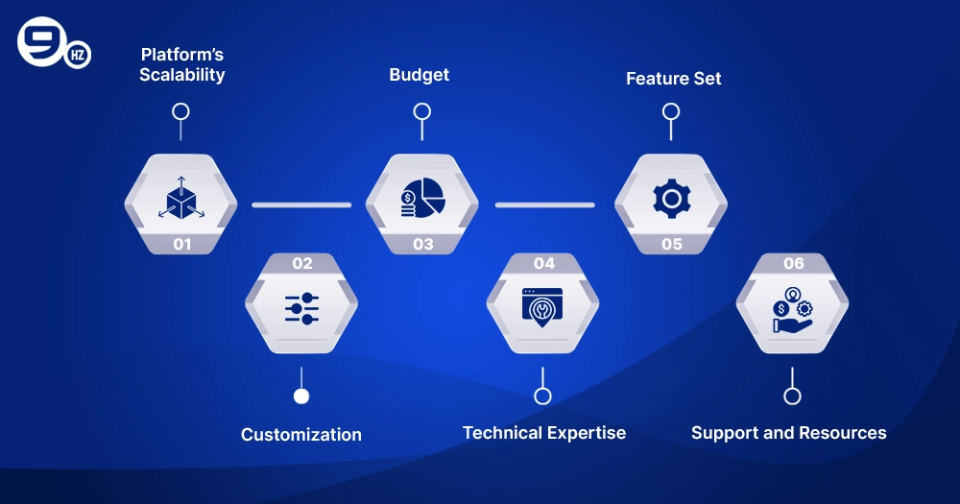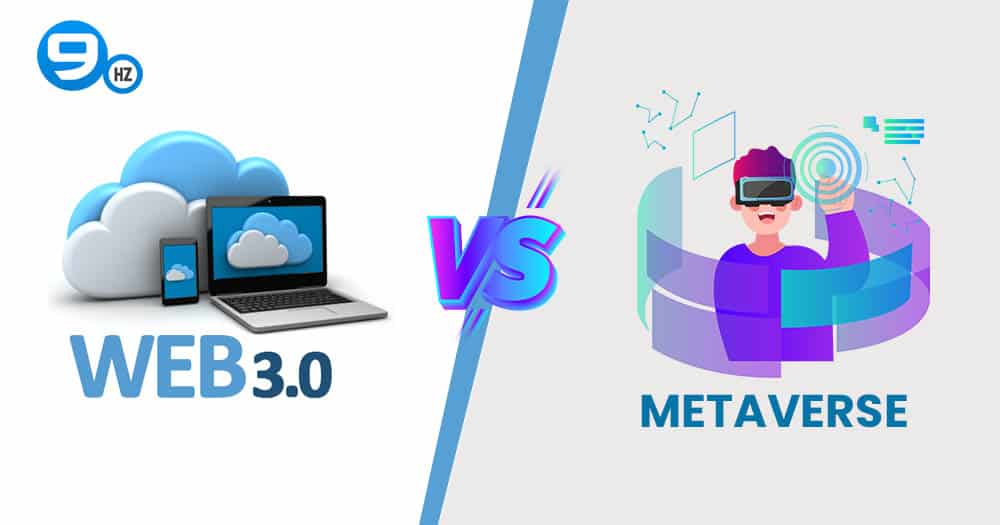According to Statista, the global eCommerce market would be worth $4.96 trillion by 2030. Did you know that? Because your online store has developed so fast, it’s more crucial than ever to choose the correct ecommerce platform. One of the most significant arguments in the industry is BigCommerce vs Magento. Both platforms provide businesses with better tools, the chance to develop, and features that put the user first. Even so, each one has its own pricing, technical requirements, and benefits. This Magento comparison will help you choose the finest platform for your online store in 2026.
Coca-Cola used the Magento Commerce (which is now Adobe Commerce) to develop an online business that can be used by businesses and consumers. Coca-Cola facilitated its global online store through the Magento Marketplace to find the add-ons by conducting more advanced marketing functionality. Many businesses use Magento because it can manage large product catalogs, multiple clients, and various payment options. This success story illustrates how a big corporation may perform better with the correct ecommerce platform.
This BigCommerce vs Magento comparison, which will help you figure out which platform is better for your online store in 2026.
What is BigCommerce?
BigCommerce is a software-as-a-service (SaaS) application that helps companies of all sorts set up, administer, and develop their online stores. Small company owners and mid-market businesses have loved it since it started in 2009. It has a lot of built-in capabilities, is easy to connect to other systems, and comes in a range of pricing options.
Here are some of the finest aspects of BigCommerce:
- Hosted solution: You don’t have to take care of computers or deal with them.
- BigCommerce dashboard: Everything you need for supplies, sales, and marketing is in one easy-to-use spot.
- SEO features: It contains built-in SEO tools, the flexibility to alter URLs, and the ability to add Google customer reviews to boost search engine rankings.
- Abandoned cart saver: Helps you regain sales that you lost and obtain better outcomes.
- Payment gateways: There are a lot of methods to pay, and the transaction fees for doing so are fair.
BigCommerce is a good choice for organizations that want an easy-to-set-up managed alternative with regular plan rates. It is also a secure solution for organizations that wish to develop without having to recruit teams to manage the back end, since it is PCI-compliant and contains security measures.
What is Magento (Adobe Commerce)?
Adobe Commerce, which used to be Magento, is an open-source ecommerce platform that allows companies to tailor the style, functionality, and connections to their requirements. Magento is more suited to large internet shops as compared to BigCommerce since it is more flexible. It is, however, difficult to establish and operate as it demands a high amount of technical expertise.
If you hire a Magento development company to help you set up, it will go more easily. These experts will handle everything, from the design to the unique connections. There are two primary versions of Magento:
- Magento Open Source Edition: You can download it for free, but you’ll have to pay for storage, server maintenance, and special development.
- Adobe Commerce (Magento Commerce): A commercial version that includes Adobe Cloud storage, enhanced marketing capabilities, and assistance for big organizations.
Key highlights of Magento include:
- Magento marketplace: Add-ons and programs, which aid the running of shops, are in the thousands.
- Customization: Choose the options between which you can create a Magento shop that best suits your brand.
- Scalability: Handles difficult product listings and business names from all around the world.
- Magento community forums: Community boards and Magento forums are great places to get support.
- Security patches: Tools for companies that need to stay up to date and safe.
Magento is the ideal ecommerce platform for businesses that require extensive functionality, a lot of customisation, and the capacity to adapt to the needs of large businesses.
Boost your eCommerce Success With Our Expert Magento Development
BigCommerce vs Magento
BigCommerce vs Magento comparison, one of the things that you should be aware of is how the two respective platforms handle prices, growth, and customization. BigCommerce is a hosted platform that is easy to operate and offers fixed prices. Rather, Magento Commerce and Magento Open Source give you your way, in the shape of tailor-made solutions and customisation. All the key features of BigCommerce vs Magento relative to the functional requirements are summarized below. This will help you to make comparisons of them.
| Feature/Aspect | BigCommerce (SaaS Platform) | Magento (Adobe Commerce) |
|---|---|---|
| Hosting | Fully hosted solution (included in plan price) | Requires separate hosting or Adobe Commerce Cloud |
| Customization | Limited to built-in features and integrations | Unlimited customization via extensions & coding |
| Ease of Use | Beginner-friendly, minimal technical skills | Requires technical expertise or agency support |
| Pricing Plans | Fixed BigCommerce plans ($29.95–$299.95/month) | Custom pricing (depends on edition & requirements) |
| SEO Capabilities | Strong SEO tools built in | Advanced SEO optimization with extensions |
| Integrations | Built-in features, simple seamless integration | Custom integrations via developers |
| Support | 24/7 support + community forums | Official Adobe support + Magento community |
| Best For | Small to mid-sized online businesses | Enterprise-level businesses and complex projects |
Key Comparison Points:
- BigCommerce makes things simple and predictable by offering clear pricing levels and a managed alternative.
- Magento open source is free, but you have to pay for storage, development, and keeping the server up to date.
- Magento Commerce Cloud is great for clients with a business plan that requires powerful SEO tools, a built-in checkout, and support for their corporate branding.
- Both BigCommerce vs Magento offer solid tools for SEO; however, Magento lets you manage how high your site ranks in search engines more than BigCommerce does.
- BigCommerce is fantastic since it’s simple to use, while Adobe Cloud is great because it can provide solutions for more complex ecommerce sites.
From Setup to Scaling— We deliver End-to-End Magento Development Services
Magento vs BigCommerce: A Pros & Cons Analysis
When online shops compare BigCommerce and Magento, they can see that each has its own strengths and weaknesses. BigCommerce is a wonderful SaaS platform for those who are just starting out since it offers consistent pricing plans and SEO tools built in. Instead, Magento Commerce is suitable for large businesses because it aids them in making modifications that are difficult to adjust and build. We can examine the advantages and disadvantages of every ecommerce platform closely in order to make an intelligent choice.
BigCommerce Pros & Cons
Many people know that BigCommerce is a SaaS application that helps you establish and develop an ecommerce business. The BigCommerce platform is simple to use and comes with several features already built in. It also includes great SEO features that may help your site show up higher in search results. BigCommerce does feature consistent pricing plans and a managed solution, but it’s not as flexible as Magento Open Source. This might be a concern for big Magento enterprises that require bespoke solutions or more complex connections.
| Pros | Cons |
|---|---|
| Easy to set up with minimal technical knowledge | Limited customization compared to the Magento open source edition |
| Predictable plan price with no hidden hosting fees | Extra fees may apply for advanced features |
| Robust BigCommerce dashboard with built-in features | Less flexibility for custom integrations |
| Strong seo toolkit, Google Analytics, and Google customer reviews support | Transaction fees can add up depending on the payment gateways |
| Abandoned cart saver and marketing tools boost conversions | Scaling for enterprise-level businesses can be challenging |
Magento Pros & Cons
You have a lot of flexibility with the open source ecommerce platform Magento, which is now named Adobe Commerce. It also boasts excellent SEO qualities. Companies can use Magenta marketplace, custom interfaces, and effective marketing features to build a Magenta store that suits them perfectly. However, it requires a lot of technical knowledge and money to afford such services as computer maintenance, hosting, and setting your own rates. It is effective with large organizations, but it might be too difficult to use among the owners of small companies in comparison with BigCommerce variants.
| Pros | Cons |
|---|---|
| Unlimited customization with the Magento marketplace and extensions | Requires significant technical expertise or hiring a team |
| Magento Open Source is free to download | Costs for hosting, server maintenance, and custom pricing add up |
| Powerful seo optimization and seo capabilities | Longer setup time compared to saas platform like BigCommerce |
| Scales easily for enterprise-level businesses | Complexity may overwhelm small business owners |
| Strong community forums, Magento forums, and Adobe Commerce support | Security and security patches require constant attention |
Maximize ROI With Tailored Magento Solutions
Which Platform is Best for Your Business in 2026?
The dimension, aspiration, and budget of your company in 2026 will assist you in determining BigCommerce vs Magento. The two ecommerce systems are equally amazing, though one can select one that suits best depending on how much one wants to expand, the level of money available, and the level of understanding of technology.
When to Choose BigCommerce
BigCommerce would be a great match when you want a managed option that is easy to operate and does not require you to take care of your server or find reasons to update it regularly. It is excellent when used in the following situations:
- BigCommerce plans that can be easily understood by owners of small companies who have to start immediately.
- Firms that are interested in selling something online want a SaaS solution with set charges and no additional server costs.
- Store owners who prefer built-in features like the BigCommerce dashboard, the abandoned cart saver, and the page creator.
- Companies who want to get better search engine results are seeking for good SEO elements, and Google Customer Reviews may assist.
- Businesses who wish to be PCI compliant and have robust security features without having to do a lot of additional effort.
Pro Tip: BigCommerce is the greatest choice for businesses who want a simple, all-in-one solution that doesn’t need a lot of custom programming.
When to Choose Magento
Magento (Adobe Commerce) is an excellent choice for big businesses or brands that are developing swiftly and want to be in charge of their own online shop. If you have a lot of professional knowledge or work with a Magento development firm, this is also the ideal choice. Here are some situations in which Magento is the ideal option:
- Some companies require special interfaces and solutions that BigCommerce and other SaaS services don’t provide.
- Magento Commerce Cloud or Adobe Commerce Cloud are what big businesses need to be able to expand.
- Companies who desire the flexibility of the Magento Open Source Edition but also want to take responsibility for their own servers.
- Store owners require powerful SEO and marketing tools, as well as the capacity to contact consumers all over the globe.
- Businesses that have long lists, a lot of various kinds of consumers, and rigorous rules about how to maintain their inventory.
Pro Tip: In case you would like to develop your company as time goes by, you have financial resources to continuously enhance your site, and you would like to have a Magento shop that is really unique, Magento is the right ecommerce platform for you.
What Factors Should You Consider When Choosing the Right Ecommerce Platform for Your Business?
The choice of the perfect ecommerce platform requires you to think about your professional talents, the size, flexibility, and money available to your team. When choosing between Magento and BigCommerce, businesses also need to check features, search engine opportunity, security options, and support. These are the factors that will eventually shape the success of your online shop in its growth, development, and other ways it helps the consumers. The most important aspects to consider are:
1. Platform’s Scalability
Your internet business could start off tiny, but it might grow into a well-known brand throughout the globe. BigCommerce can expand with medium-sized organizations, whereas Magento corporate and Magento Commerce Cloud are only for really big firms. Magento’s corporate plans allow you the greatest options if you wish to develop your company throughout the globe in the future.
2. Customization
When it comes to sophisticated design flexibility, Magento open source and Magento sales provide you a large variety of possibilities in the Magento marketplace. BigCommerce plans, on the other hand, come with a lot of built-in capabilities, but they aren’t as flexible as Magento.
3. Budget
The money you have is really essential. The price plans from BigCommerce are clear. There are regular fees and explicit pricing levels for each plan. You can get the open source version of Magento for free, but you have to pay to host it, integrate it, and employ developers. Prices for Adobe Cloud should be based on what your firm requires.
4. Technical Expertise
Do you or your team know how to accomplish things using technology? BigCommerce is fantastic for folks who aren’t very proficient with technology. Magento, on the other hand, requires a lot of technical know-how or aid from a Magento development company. If you don’t have the necessary tools, Magento’s complexity might limit your development.
5. Feature Set
Consider the benefits of using BigCommerce vs Magento. It has Google Analytics, a tool to preserve abandoned carts, and a page creator. On the other side, Magento offers the greatest marketing tools for huge organizations, specific connections, and comprehensive SEO optimization.
6. Support and Resources
Things need support to work well. BigCommerce includes community forums and help that is accessible around the clock. People may support one other a lot on Magento’s forums and in the community. Adobe Commerce is beneficial for big businesses since Adobe gives them additional support.
Conclusion
There is no one proper answer to the question of which is better: BigCommerce vs Magento. It depends on your objectives, resources, and plans for progress instead.
- BigCommerce is a good choice for small and medium-sized company owners that want a managed solution with steady pricing, easy setup, and solid security.
- If you want to reach people all over the globe, make a lot of updates, and pay a lot of money for technical assistance, choose Magento. Adobe Cloud lets you add as many users as you desire. It also includes sophisticated functionality and excellent SEO techniques.
In 2026, either location might be a fantastic place to launch a profitable internet shop. The platform you choose will rely on how well it meets the needs of your ecommerce business in terms of innovative solutions, pricing, and growth opportunities.
You should consider how the consumer will feel, how long the company will endure, and how well it will rank in search engines, no matter which one you choose: BigCommerce vs Magento. If you want your ecommerce platform to perform successfully in the rising digital market, be sure your option aligns with your company objectives.
FAQs
1. Which is better for beginners: BigCommerce or Magento?
BigCommerce is beginner-friendly due to its nature as a hosted platform with built-in features, as compared to Magenta, which requires technical expertise and may require the services of a development agency.
2. Is Magento more expensive than BigCommerce?
Typically Magento is more expensive due to the cost of hosting, different pricing, and server maintenance, and BigCommerce only uses simple and predictable plans to serve small-to-mid sized stores.
3. Can I migrate from Magento to BigCommerce or vice versa?
You have the option of moving between BigCommerce vs Magento or vice versa with the help of third-party tools or agencies, however, they may require some technical knowledge or assistance.
4. Which platform offers better SEO features?
Both BigCommerce and Magento are good at Search Engine Optimization, but Magento Commerce gives you the opportunity to dive into customizations whereas BigCommerce gives you the opportunity to go simple with an in-built SEO functionality such as Google integrations and an abandoned-cart saver.
5. Do I need developers to manage a Magento store?
Operating a Magento store typically requires hiring developers or substantial technology expertise to make updates, security patches, and customisations – the dashboard of BigCommerce is much more user-friendly.
6. Which is more scalable for enterprise eCommerce?
The Magento Cloud edition and its Adobe counterpart are designed to support large-scale companies with advanced features and flexibility, but the plans of BigCommerce are more appropriate with small-to-mid sized ecommerce stores.
7. What hidden costs should I expect with BigCommerce vs Magento?
With Magento, you should also get an additional bill like hosting fees, server upkeep, paid extensions, and salaries of a developer, whereas the BigCommerce plans include the majority of necessary options and keep the price within the predictable range.
Great Together!










